Matt Rees's Blog - Posts Tagged "scotland"
Acid attacks, crucifixion, and a new Patricia Cornwell: Caro Ramsay's Writing Life interview
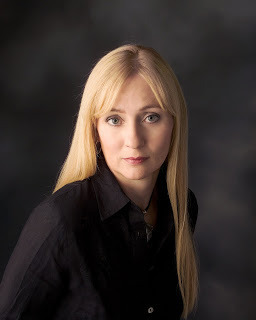
Caro Ramsay’s debut “Absolution” is one of the most disturbing thrillers you’ll ever read. It features a beautiful woman who’s the victim of an acid attack and a series of disembowelments in the “Crucifixion killings” of young women. Caro’s also from one of the roughest neighborhoods of Glasgow, where she sets her novels. Would it surprise you to learn, then, that’s she’s an extremely charming person? We met last year at an awards dinner in London (where she trained as an osteopath) and I’m delighted that she agreed to answer the questions I pose in The Writing Life. (For American readers, osteopathy is a British form of medicine involving manipulation of the muscles and bones. It hasn’t really taken off in the U.S. It’s a bit like what a U.S. chiropractor does. Although I’m sure I’ll get emails now from outraged osteopaths and critical chiropractors who disagree. In any case, it doesn’t involve crucifixion, although my mother who once had to visit an osteopath for a slipped disc said it felt like it.) Out earlier in May in the UK, Caro’s new book “Singing to the Dead” was, for many of her fans, a long time coming – not that she’s been lazy, it’s just that a year and a half is a long time to wait in the world of crime fiction! But the response from readers, who’ve already made it a bestseller in Scotland, shows that it was worth it. She’s often compared to fellow crime-writing Scot Ian Rankin – he’s Edinburgh to her Glasgow. With her own medical background, a better comparison might be the medical thrillers of Patricia Cornwell.
How long did it take you to get published?
The first thing I wrote was picked up by an agent and sold to Penguin so it was instant for me. It was never a plan of mine to become an author. I was lying in a hospital bed unable to move for a long time and wrote 250,000 words because I was so bored. Those words became two novels - Absolution and Singing To The Dead.
How long did it take you to get published?
The first typescript I sent away was accepted by an agent and subsequently sold to Penguin. My agent does do a fair bit of in-house editing and I think they saw in that first draft somebody who had a gift for writing but who had no idea how to put a novel together. But once I had learned that (very hard) lesson the book was immediately offered to Michael Joseph at Penguin and they immediately accepted. So compared to other authors I was very lucky. The lucky thing was having a very good agent!
Would you recommend any books on writing?
None that I have found really helpful. I think I found it of more benefit to read a lot in my own genre, finding out what worked for me and what didn’t. My philosophy is to write what I would want to read!
What’s a typical writing day?
Chaotic. I get up about six thirty, feed animals, do some writing, look at the next bit that needs done, go to work, think about what I am going to write next while driving etc come home at night and eat a sandwich for tea while writing the bit that has been forming and evolving in my mind during the day. I have two big writing days a week when I sit all day and type. On these days I can do 7,000 words a day easily. Plot problems tend to work themselves out when you are not sitting at the computer. I have no problems with discipline, I am obsessive about it and if don’t write every day I get withdrawal symptoms. An academic summed it up for me – creativity time and productivity time. They are not the same thing.
Plug your latest book, what’s it about? Why’s it so great?
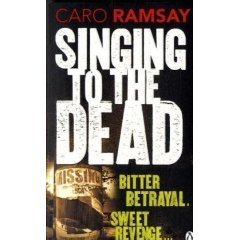
It’s about child abduction, food tampering, the nature of celebrity, sibling rivalry, murder, death … usual every day stuff of life’s rich tapestry. As it was written at the same time, it is technically, the second half of the first book, but it has a very different flavour. It’s very up close and personal. A serial killer out on the dark streets of Glasgow in mid winter is one thing but suspecting he might be sitting next to you on the bus every morning is much more chilling!! As I write it’s sitting at number 4 in the charts (crime Scotland!) so I‘m feeling very pleased.
How much of what you do is:
a) Formula dictated by the genre within which you write?
b) Formula you developed yourself and stuck with?
c) As close to complete originality as it’s possible to get each time?
Good question for somebody who has only written three books! I like my genre, I like my characters, so there is a very precise framework that I work within, yet within that framework I think it is possible to write books of different style and timbre. I’m not really an experienced writer at all, I’m from a medical background and I feel I need the support of my well known supporting cast to help me through. I have never felt the need to break away from my serial characters but time will tell.
I am a bit tentative about saying it because I don’t think I can look at it objectively myself but it has been reviewed as one of the best novels this year so far and a Canadian review said “crime writing does not get any better.” For some reason I already have a big following in Canada all those ex-pat Scots maybe.
What’s your favourite sentence in all literature, and why?
“I’d far rather be happy than right!” Slartiblartfast says it in Hitch Hikers Guide to the Galaxy - Douglas Adams. Great philosophy on life and it’s a fantastic closing line if losing an argument at a party. I’m having it on my gravestone.
What’s the best descriptive image in all literature?
Am I allowed the only one I remember most clearly? It’s the first paragraph of Black Beauty by Anna Sewell, a fantastic book full of philosophy and wisdom re the nature of our relationship to the world around us.
Who’s the greatest stylist currently writing?
Have to say since I started writing I have no time to read, so I’ll pass on this one re the word currently. But PD James full stop!
Who’s the greatest plotter currently writing?
Nobody really stands out, I’m afraid. I know Reginald Hill’s plots are not horrifically complicated but it’s hard to see past him for plot/ character balance. As you might guess, I don’t read much American crime so apologies for that!
How much research is involved in each of your books?
A full time, demanding job means I do write about what I know so lots of medical stuff per murder. I have lots of friends in low places (cops and lawyers) who love to help out over a coffee… and the rest is done on the internet. The third book is about malignant narcissism. My training in psychology helps me to plan the book, then I very carefully research the specifics I need. Only a fine peppering of the research I do gets in the book.
Where’d you get the idea for your main character?
My characters tend to arrive in my head fully formed and ready to go. (This can be a sign of mental illness!) I know there is a debate as to whether characters can take over the plot … the ‘whose fingers are on the keyboard?’ argument. But in my case, they do and layers of their persona come out as the demands on the character grow (often to my surprise) but I guess that’s the creative subconscious mind working in full flow.
Do you have a pain from childhood that compels you to write? If not, what does?
No, not really. I had a very nice childhood in what would be considered the deep badlands of Govan, one of the hardest areas of inner city Glasgow. I make a conscious decision not to portray my home city in that way, it’s been done to death – pardon the pun.
I think all writers have a tendency to look on life from a slightly sideways perspective and I’ve always been aware of that. My siblings and I could view the same situation and I would walk away with a totally different interpretation of events - mine always being slightly on the dark side.
What’s the best idea for marketing a book you can do yourself?
I’m still finding my way in this writing world but I run a very successful practice outside my writing life. The same rules apply in any walk of business - give value for money, show you care, do that little extra … and they will remember you as a ‘good thing.’ I get paid a lot of money for my books so when my publisher tells me to jump, my only question is ‘how high?’
What’s your experience with being translated?
My natural language is broad Glaswegian and my editor sometimes asks to translate it into English!! But foreign transcripts have been very kind, i.e. the word ‘skelf’ is a common word for a splinter (as you would get in your fingertip from a rough piece of wood). A few translators emailed me to gauge the politeness of this word. Once I told them my 105 year old granny would use it… they were happy. In some languages I think a splinter can have a rather rude connotation! My experience of translation has been very positive.
Do you live entirely off your writing?
I could live off my writing now but I’m blessed to do a day job I love so I don’t want to give it up. I get paid lots for my hobby, but I can see a time, maybe after book four when I will have to choose. Not a decision I am looking forward to.
How many books did you write before you were published?
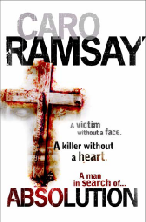
Got the first one published. No dusty typescripts under the bed or anything.
What’s the strangest thing that happened to you on a book tour?
Ermmm, a very drunk Irish journalist had a go at me - a teetotal Glaswegian in a bar at one in the morning … (he was never going to win) and after a few choice words on both sides, we found out our granddads knew each other! After that we were the best of pals – a very Celtic thing!
What’s your weirdest idea for a book you’ll never get to publish?
There’s a cartoon character who appears in book two, Squidgy McMidge who is a very politically incorrect cartoon character who goes about causing chaos with his friend Bonsai McMidge. But as I write this there has already been an approach made re the copyright of Squidgy The Mighty McMidge. He even has his own theme tune now. And a Tee –shirt!
Really, real fiction... and Welsh detectives
The new blog I've started with fellow crime writers Christopher G. Moore, Colin Cotterill and Barbara Nadel has a new post from me today. It's about why I came to write so-called genre fiction. It starts like this:
Writers have it all wrong. They think they need to learn about other writers. I studied English literature at Oxford University and I read all I could find of the sort of literary criticism that makes a novel seem like a piece of East German economic analysis. Three years later, I hadn’t learned a thing — except that it was
fine to have a room you could take a girl to without having to sneak past your mother, Guinness isn’t good for you, and the deputy bank manager at Lloyd’s on Broad Street with the goatee and the bald head didn’t just /look/ like Ming the Merciless.
Then I read Dashiell Hammett. Before he published novels, Hammett was a Pinkerton detective. What he wrote was real. I could smell the places he’d been for the Pinkertons, feel the punches he’d taken, think the way he’d had to think to outwit true criminals. I’d been reading Marxist critical theorists on Daniel Defoe and French deconstructionists whose scribblings about the “stereographic plurality of significances” were intended to tell me that whatever I thought a book was about was, indeed, what it was about–except that it wasn’t, was it. Or was it?
Read the rest on International Crime Authors Reality Check.
The excellent UK crime fiction blog It's a Crime features me in a post about the growing number of Welsh crime writers. Tartan crime (Scottish writers like Ian Rankin) has long been big and It's a Crime notes the recent wave of Irish crime writers--I'm a fan of Gene Kerrigen, Bob Burke, Declan Burke and Stuart Neville. Now she says it's time for the Welsh, noting some other up-and-comers.
Let's hear it for the Taffia!
(Perhaps I should explain that to my American readers: the English slang for a Welsh person is "Taff," because the river through Cardiff the capital is called the Taff and few English ever venture further into Wales than that. Therefore a Welsh mafia would be a Taffia...Amaze your friends with that one.)
Writers have it all wrong. They think they need to learn about other writers. I studied English literature at Oxford University and I read all I could find of the sort of literary criticism that makes a novel seem like a piece of East German economic analysis. Three years later, I hadn’t learned a thing — except that it was
fine to have a room you could take a girl to without having to sneak past your mother, Guinness isn’t good for you, and the deputy bank manager at Lloyd’s on Broad Street with the goatee and the bald head didn’t just /look/ like Ming the Merciless.
Then I read Dashiell Hammett. Before he published novels, Hammett was a Pinkerton detective. What he wrote was real. I could smell the places he’d been for the Pinkertons, feel the punches he’d taken, think the way he’d had to think to outwit true criminals. I’d been reading Marxist critical theorists on Daniel Defoe and French deconstructionists whose scribblings about the “stereographic plurality of significances” were intended to tell me that whatever I thought a book was about was, indeed, what it was about–except that it wasn’t, was it. Or was it?
Read the rest on International Crime Authors Reality Check.
The excellent UK crime fiction blog It's a Crime features me in a post about the growing number of Welsh crime writers. Tartan crime (Scottish writers like Ian Rankin) has long been big and It's a Crime notes the recent wave of Irish crime writers--I'm a fan of Gene Kerrigen, Bob Burke, Declan Burke and Stuart Neville. Now she says it's time for the Welsh, noting some other up-and-comers.
Let's hear it for the Taffia!
(Perhaps I should explain that to my American readers: the English slang for a Welsh person is "Taff," because the river through Cardiff the capital is called the Taff and few English ever venture further into Wales than that. Therefore a Welsh mafia would be a Taffia...Amaze your friends with that one.)
The UK Crime Fiction Insider: Duncan Campbell's Writing Life
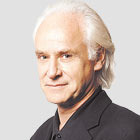 One of the great pleasures of life as a writer is being paired with interesting authors when you speak at book fairs. (It's also an occasional rough ride when you find yourself stuck with a bum who can't write, but I'm being nice here so I won't go into any of those.) The most delightful fellow I've ever met in this way is Duncan Campbell with whom I was paired at the book fair in his native Edinburgh two years ago. He also happens to be the British crime writer with the best knowledge of the UK's criminal fraternity -- which he covered for three decades for The Guardian, famously managing to be liked by all the old lags he wrote about. His latest novel, "If It Bleeds," focuses on the nexus of crime and crime journalism. It's hilarious and rather chilling -- particularly so for an ex-journalist such as myself whose nightmares are much more likely to take place in a newsroom than in criminal haunts. Duncan's previous novel "The Paradise Trail" drew on his experience of the "hippie trail" in India in the early 1970s. Like "If It Bleeds," it drew on his own experiences, but had much more than mere authenticity -- drugs, dirt, noise and hippie naivete -- to recommend it. In a review, my esteemed fellow Welshman (and former hashish kingpin) Howard Marks wrote: "The dialogue...is the wittiest I have read in any work of fiction, including Catch-22, my hitherto favourite. The fascinating historical and cultural context is unobtrusively drip-fed, and the whodunit suspense masterfully created." He also said the drug stuff was on the money. Here's Duncan on writing and on the life he lives around it:
One of the great pleasures of life as a writer is being paired with interesting authors when you speak at book fairs. (It's also an occasional rough ride when you find yourself stuck with a bum who can't write, but I'm being nice here so I won't go into any of those.) The most delightful fellow I've ever met in this way is Duncan Campbell with whom I was paired at the book fair in his native Edinburgh two years ago. He also happens to be the British crime writer with the best knowledge of the UK's criminal fraternity -- which he covered for three decades for The Guardian, famously managing to be liked by all the old lags he wrote about. His latest novel, "If It Bleeds," focuses on the nexus of crime and crime journalism. It's hilarious and rather chilling -- particularly so for an ex-journalist such as myself whose nightmares are much more likely to take place in a newsroom than in criminal haunts. Duncan's previous novel "The Paradise Trail" drew on his experience of the "hippie trail" in India in the early 1970s. Like "If It Bleeds," it drew on his own experiences, but had much more than mere authenticity -- drugs, dirt, noise and hippie naivete -- to recommend it. In a review, my esteemed fellow Welshman (and former hashish kingpin) Howard Marks wrote: "The dialogue...is the wittiest I have read in any work of fiction, including Catch-22, my hitherto favourite. The fascinating historical and cultural context is unobtrusively drip-fed, and the whodunit suspense masterfully created." He also said the drug stuff was on the money. Here's Duncan on writing and on the life he lives around it:How long did it take you to get published?
I was lucky. I had written an article about Billy Connolly, the terrific Scottish comedian, in Time Out magazine. It was 1975 and he was just about to become very big so Pan, the publishers, wanted a speedy book about him. They asked me if I would like to go on tour with him and write it, with his cooperation. You kidding?
Would you recommend any books on writing?
George Orwell’s essay, Politics and the English Language. The Guardian (where I worked for 22 years, ) Style Book is very helpful.
What’s a typical writing day?
When I was a carefree, young freelance journalist, I would write until the early hours of the morning, with music playing in the background. Now I do all my ‘best work’ ho, ho, in the morning. When I wrote my two novels, I worked a five-day week and aimed for 2000 words a day. I thought this was impressive but an old pal, Jim McClure, who very sadly died a couple of years ago, told me that when he wrote his great prize-winning South African crime novels, he would work from 9 am till 5 am every day for two weeks and have a book at the end of it. He was South African but, obviously, with Scottish Calvinist roots.
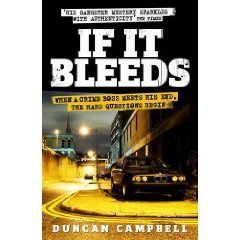
Plug your latest book. What’s it about? Why’s it so great?
It’s called If It Bleeds, (Headline) which is taken from the old newsroom motto - ‘if it bleeds, it leads’, i.e., if it’s about murder and gore, it goes on the front page or at the top of a news bulletin. It’s about a 50-something crime reporter called Laurie Lane who is asked by an old London gangster, Old Man Hook, to ghost his autobiography. Soon after that, the gangster is shot dead. Laurie has his own problems as his country singer wife has left him for an older man, his teenage daughter is meant to be doing her A levels and he is being investigated by his digitally-snooty news editor for fiddling his expenses. (I promise you, it’s not autobiographical.) Can Laurie find out who killed the gangster and save his job? Could it be the Russian hoods who want a slice of the Hooks’ clubland business? The gangster’s own family? Bent coppers? What’s the Thailand connection? So it’s about crime and crime reporting and bad jokes told by a veteran crime reporter called ‘the Vicar’. Now read on...
How much of what you do is:
a) formula dictated by the genre within which you write?
b) formula you developed yourself and stuck with?
c) as close to complete originality as it’s possible to get each time.
I think most of us are slaves - or at least indentured labour - to the genres in which we work. My earliest ‘grown up’ reading was Agatha Christie and I read as many of her as I could. I went on to lots of Graham Greene and Evelyn Waugh. Their ghosts must hover somewhere.
What’s your favorite sentence in all literature, and why?
Anything by Groucho Marx on a good day.
What’s the best descriptive image in all literature?
John Kennedy Toole creates some spectacular images in A Confederacy of Dunces.
Who’s the greatest stylist currently writing?
Someone just gave me an old copy of James Cameron’s Point of Departure, which I had not read for a while. He writes with lucidity, grace, humour. Quite a feat. Scottish, of course. I know he’s dead but his copy is as alive as ever.
Who’s the greatest plotter currently writing?
Gosh. Tempted to say Alistair Campbell (no relation.) John le Carre?
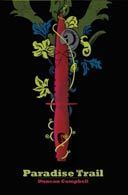
How much research is involved in each of your books?
I’ve written three non-fiction books on crime: That Was Business, This Is Personal; The Underworld; and A Stranger and Afraid. They all required quite a lot of research which I - mostly - enjoyed. The two novels, The Paradise Trail and If It Bleeds, were both the result of decades and decades of diligent research which I imagined, at the time, was life.
Where’d you get the idea for your main character?
Pathetically, the main characters in both novels have a lot of me in them.
Do you have a pain from childhood that compels you to write? If not, what does?
I think if I had had a more painful childhood, I might have been a better writer. But who do you complain to?
What’s the best idea for marketing a book you can do yourself?
If you are a journalist working for a publication, you can always try and persuade the features department to run a piece to coincide with a book’s publication. Fortunately, the places I have worked have had the sweetest, most decent and, I would say, the most perceptive of people working in those departments.
What’s your experience with being translated?
If I could speak a word of Swedish or Norwegian, I would let you know.
Do you live entirely off your writing? How many books did you write before could make a living at it?
I have always lived off my ‘writing’ but that has mainly been journalism. I don’t know many people who make a living solely from books.
How many books did you write before your first one was published?
I wrote a book called The Walking Wounded in 1972, which was based in Calcutta and which was sensibly rejected by a publisher in San Francisco at the time. I hung on to the manuscript for 32 years and used it as source material for The Paradise Trail. Waste not, want not.
What’s the strangest thing that happened to you on a book tour?
I can’t say at the moment because I want to make use of it, in a slightly shameful way, in a book which I have yet to write.
What’s your weirdest idea for a book you’ll never get to publish?
I’d like to do a graphic novel about crime but am hampered by the fact that I can’t draw.
Published on February 23, 2010 10:07
•
Tags:
billy-connolly, british-crime-fiction, catch-22, crime-fiction, duncan-campbell, edinburgh, edinburgh-book-fair, evelyn-waugh, george-orwell, graham-greene, groucho-marx, hippie-trail, hippies, howard-marks, if-it-bleeds, india, scotland, the-guardian, the-paradise-trail, time-out
Stealing the novel, really
 Every couple of days a little alert pops up in my email account letting me know that I can read my books for nothing in Norwegian. My Norwegian’s not so great and I can read my books for nothing any time. But that’s not the point.
Every couple of days a little alert pops up in my email account letting me know that I can read my books for nothing in Norwegian. My Norwegian’s not so great and I can read my books for nothing any time. But that’s not the point.Scandinavia is a major center of so-called Cyberpunks who have willfully misinterpreted an old hacker adage that “information wants to be free” to mean “go ahead and steal things from which someone else expects to earn his livelihood.” Such Cyber types have, among other things, loaded electronic versions of my novels in Norwegian onto the internet so that anyone can take them without paying.
It’s a little odd. Anyone who’s been to Scandinavia will see that the locals are perfectly willing to pay through the nose for things which ought to be cheap. Even if they actually bought my novel, it’d still be cheaper than the train ride from Oslo Airport to downtown Oslo or a sandwich and soda by the fjord. And everyone’s so nice. Maybe that’s the problem–they’re trying to be nice to information. As long as they believe that the information wants to be free, then they’re only helping the information out by taking it for nothing…
It’s all the thin end of a disturbing wedge for creative artists such as yours truly who support their families entirely from their endeavors as authors, artists, musicians – and who for the most part would be somewhat better remunerated were they to choose to drive a bus for a living.
Information wants to be free but, as the original coiner of that phrase noted, information also wants to be expensive. If information is the catalogue of the Library of Congress, make it free. Sure, let’s have free access to recipes from Renaissance Florence and the geology of the Grand Canyon.
But not art. Art doesn’t want to be free. Art wants to be labored over by a person whose mind isn’t distracted by other things. Art wants to be made as good as it can be. Art wants creative dedication, it doesn’t want to be zapped out by people in a hurry who have to do a day-job, too.
Art, needless to say, is not just information.
Of course we can all justify a little theft. When I was a teen, I used to steal books. But only from big chain bookstores and only from authors who were long dead. The one time I broke those self-imposed rules, I nearly got tossed out of university for lifting a copy of a book written by my tutor’s wife from the college library before the librarian had even got around to cataloguing it. Anyhow, I gave that one back, because my education was free, so I was content for that particular bit of information not to be.
Others use Ebay to salve their conscience. For example, some penny-pinching Scot is offering for sale on Ebay Advance Uncorrected Proofs of my novels. These are sent out free to reviewers and booksellers before the books appear on the shelves. They’re clearly marked “Not for Resale” in big letters on the cover.
It could be that this person in Scotland would’ve behaved differently had the words “Nae fer resale” appeared in dialect on the cover. But I suspect that this person thinks that selling something dishonestly on the internet isn’t really dishonest. If that person were to walk into a second-hand bookstore and face a bookseller with his clearly marked “Not for Resale,” he’d feel a little ashamed at asking money for it. In selling just as in the writing of offensive anonymous comments, the internet is a shield for our worst behavior.
Well, as they say in Scotland, dinna fash yersel. I’ll manage, even if there are a few such novel proofs flying about. But think of poor Stephenie Meyer. Her blog mentioned not so long ago that someone had posted an early draft of her next novel on the internet and that hundreds of thousands of people had downloaded it.
(An aside: why on earth would anyone read an early draft of a novel unless they had to do so? Novels aren’t flash fiction. They take a long time and lots of work to make them right and until they’re right the reading of them can be pretty dire.)
Hey, you say, she’s not short of cash. Well, what’re you, a communist? Robin Hood?
Okay, Meyer’s no doubt quite rich as a result of her strange subgenre. But she’s not Goldman Sachs. She isn’t marketing worthless things to people, intending for them to lose millions of dollars and enrich her in return. She’s being paid for the enriching experience of reading for those who buy her books.
When I mentioned to some friends that this sort of thing went on with books, they were surprised. Each of them noted that they had taken music and movies from the internet in just the same way. Each also said that they figured Roman Polanski was rich enough to let them have a free look at “The Ghost Writer.” That Bono would still be able to afford fancy sunglasses if they ripped off his latest album.
But remember, Cyberpunks are anarchists. Do you really want them to define the way you live? When was the last time you read a good book by an anarchist?
As the recently deceased Malcolm McLaren always noted, even The Sex Pistols with their claim to be anarchists were only in it for the money.
Published on April 29, 2010 00:34
•
Tags:
art, bono, crime-fiction, cyberpunks, ebay, goldman-sachs, grand-canyon, internet, library-of-congress, malcolm-mclaren, norway, oslo, roman-polanski, scandinavia, scotland, stephenie-meyer, the-ghost-writer, the-sex-pistols, u2



